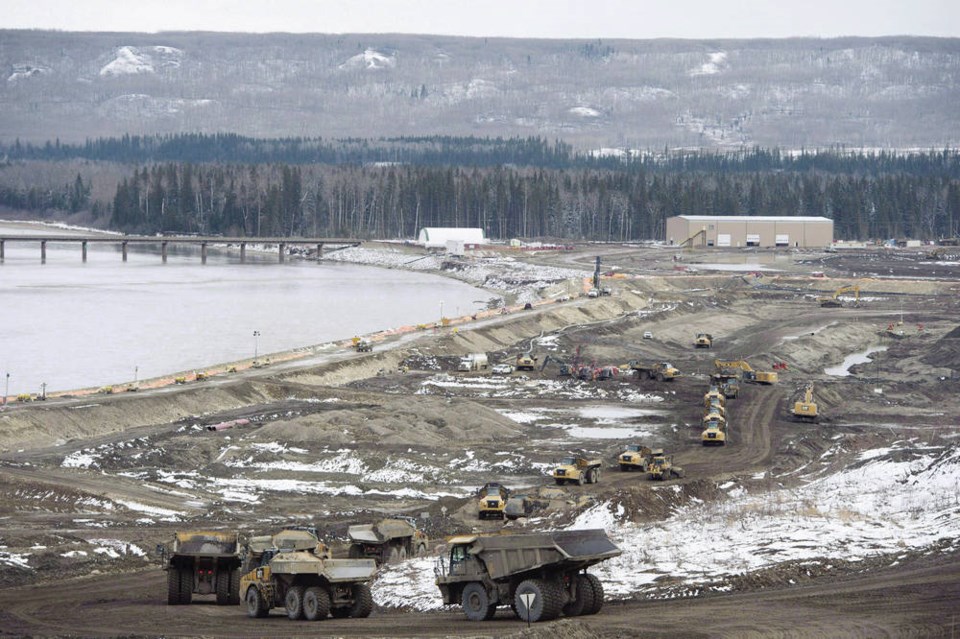A commentary by the climate campaigner at the Wilderness Committee.
Since a vast majority of British Columbians live within a three-and-a-half hour drive of the American border, sometimes it’s easy to forget the other 90 per cent of the province.
It seems like we only talk about the North when there’s a controversial megaproject like Site C or LNG Canada being proposed — and that’s a problem.
Northern B.C. is a vast region with dozens of cultures, communities, landscapes and, not surprisingly, ideas about resource development. But for its entire existence the province has treated the North with a paternalistic, colonial approach that extracts resource wealth and returns little to communities left to deal with the impacts.
That’s what we heard loud and clear in interviews with 24 leaders from Indigenous nations and local governments across the region. Given the province has seen serious setbacks in its goals around Indigenous rights and climate change, largely due to conflicting priorities for the North, we asked participants what they needed for their communities to enact these objectives.
Our new report, Voices and Vision of Northern British Columbia, reflects their aspirations for the coming decades.
People shared their challenges with aging infrastructure, lack of services and cumulative impacts of development. But more importantly, they saw enormous opportunities for their communities in sectors such as reclamation and stewardship, renewable energy, tourism and outdoor recreation, forests and food, remote work and retirement, and the care economy.
While these areas of growth offered much promise, often participants identified the need for strategic investments in infrastructure, amenities and services so they could take advantage of these possibilities. There was a consensus that any new approach must be grounded in reconciliation and decolonization, and foster collaboration between neighbouring communities.
Taken together, northern leaders articulated a vision of a new strategy for the region that focused on community economic development, cultural revitalization, environmental stewardship and social well-being.
What they need is the support from the provincial government to make it happen. Resources, capacity and decision-making power are all necessary so communities can develop these plans and put them into action.
Every single interview brought up the issue of resource revenue sharing.
Northerners are acutely aware that the wealth being extracted from their surroundings leaves their communities.
It is a major point of discord. Whether it’s used to build transit, hospitals and schools in the province’s population centres or to enrich the shareholders of multinational corporations, locals see marginal benefit for the impacts they shoulder. That needs to change.
Boom-and-bust cycles dependent on global commodity prices have serious consequences for northern communities. When new projects are underway, housing and services are stretched. If a mine or a mill shuts down, it’s not only jobs that are lost, but the members of the local hiking club or the coach of a kids’ sports team.
Many northern leaders want to diversify their economies so they are not beholden to forces beyond their control.
Besides providing funding for the evolution of communities beyond reliance on a single industry like logging, mining or fracking, the report also suggests a host of changes for the provincial government.
Simple adjustments to grant programs would make it easier for small communities with less capacity to compete with major urban centres.
Incorporating local knowledge into the design of policies instead of relying on bureaucrats with little experience on the ground would go a long way, too.
Ultimately, northerners want more say in decisions that affect their communities, and they need support to succeed in a world with new challenges and realities.
If the province wants to be successful in the commitments it has made, it needs to adopt a new strategy with a more holistic approach to development. B.C. must move beyond pitched battles over resource megaprojects in the North to a collaborative model that centres local voices, respects Indigenous sovereignty, ensures a safe climate and builds thriving communities.
- - -
To comment on this article, write a letter to the editor: [email protected]



